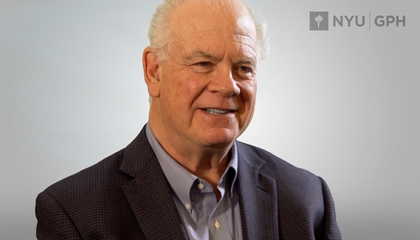GPH-GU 2152 Introduction to Agent-Based Modeling (3)
Prof. Joshua Epstein and Prof. Erez Hatna
Wednesdays 4:55 - 6:35pm
How do local (micro-scale) interactions between individuals generate global (macro-scale) societal patterns-- of disease, of conflict, of inequality? Agent-based modeling (ABM) is a powerful new way to address such questions computationally. In ABMs, software individuals and the interactions between them are explicitly represented, and these local interactions generate the global patterns we wish to explain, and to alter through policy, epidemics being prime examples. This course introduces students to ABMs from epidemiology, public health, and social science. It teaches students without prior programming experience to build, analyze, extend, test, and present simple models in NetLogo.
GPH-GU 2211 Environmental Injustice: From Local to Global (3)
Prof. Beverly-Xaviera Watkins
Wednesdays 4:55-6:35
Environmental justice has implications for public health practice both locally and globally because people of color and the poor continue to be exposed to greater numbers of environmental hazards in their homes, on their jobs, in their communities, and in the food they eat relative to their society at large. Environmental inequities result from a host of industry and government practices such as discriminatory land use; discriminatory facility sitting and cleanup strategies; exclusionary practices and disproportionate exposure to pollution and toxicants. This course will explore the links between environmental justice and civil rights and the political response to the movement both locally and globally through legislative and regulatory actions. The first half of this course will focus on the history of the environmental justice and cover seminal readings, regulations and laws. The second half will focus on local and global air, water, food and land based environmental exposures.
GPH-GU 2260 Disasters, Complex Systems, and the Social Ecology of Health (3)
Prof. David Abramson
Mondays 4:55-6:35
Pre-requisites: GPH-GU 2106 or 5106 and GPH-GU 2140 or 5140
Disasters, whether natural, technological, or man-made, often reveal the strength of our social fabric. They also reveal how much our health and well-being is dependent upon numerous complex systems in our lives. These systems can range from our internal cellular and micro-biological systems; through social and cultural systems; to public health and medical systems; to critical infrastructure and lifeline systems; to larger environmental and ecological systems, among others. This course will employ a number of disciplinary approaches to understanding risk, vulnerability, and resilience as we explore the theories, frameworks and methods for understanding disasters and their relationship to population health. It will be particularly valuable for students interested in public health research and practice.
GPH-GU 2195 Nutrition & Metabolism (3)
Prof. Andrea Deierlein
Mondays 6:45-8:25
Pre-req: GPH-GU 2115
This course examines the biological and physiological roles of macronutrients (carbohydrates, proteins, fats) and micronutrients (vitamins and minerals) in human health and disease. The associations between these nutrients and the development or prevention of adverse health outcomes relevant to public health, including obesity, diabetes, cardiovascular diseases, and cancer, will be addressed.
